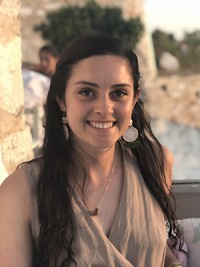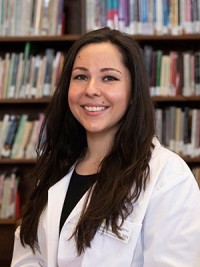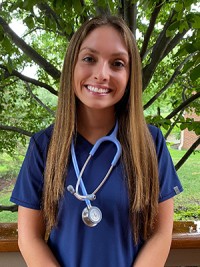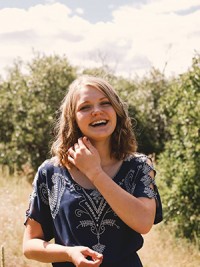Global immersion at home
The COVID-19 pandemic has reshaped our lives, and international travel has been disrupted. Seventy-six students registered to travel abroad in the spring and summer semesters before all programs were canceled. Despite those challenges, many students decided to continue their global education through alternative programs aimed to synthesize local and global health disparities. A few of those students took the time to share their thoughts on these alternative immersion experiences, which some also showcased at the U-M School of Nursing’s Virtual Global Fair.

 BSN student Yashodara Enz and Primary Care Family Nurse Practitioner student Nikki Kaledas: “Developing a Gender-Based Violence Prevention Network among Universities in Sub-Saharan Africa”
BSN student Yashodara Enz and Primary Care Family Nurse Practitioner student Nikki Kaledas: “Developing a Gender-Based Violence Prevention Network among Universities in Sub-Saharan Africa”
Enz: I worked with Dr. Michelle Munro-Kramer on her research within the Gender-based Violence Prevention Network in sub-Saharan Africa during summer 2020. Since the project was still in the early stages, I was able to see how research gets off the ground and what different components go into creating and implementing a research project. It was a wonderful experience to be involved in research that aligns my interests, work as a team with another student and Dr. Munro-Kramer, and learn from someone who has a strong research background.
Kaledas: My experience working with Dr. Michelle Munro-Kramer this summer was immensely gratifying on a personal and academic level, providing great insight into the world of research in a way that no class could have done. This research involved the initiation of a gender-based violence prevention network at five universities in Africa. During the summer, several members of the international research team and I were able to collaborate through different channels, including biweekly Zoom calls and email, to discuss our ideas and examine ways to move the research forward. Ultimately, if it were not for this opportunity, I don’t think I would have understood all of the hard work, dedication and time necessary to prepare, perform and publish research. Being part of this team will unquestionably be one of my fondest memories of graduate school.
 BSN student Samantha Mindell: “Food Insecurity and COVID-19: A Toxic Relationship”
BSN student Samantha Mindell: “Food Insecurity and COVID-19: A Toxic Relationship”
As 2020 progressed and the story of COVID-19 deepened, I became aware of the rising issue of food insecurity in the United States. After in-person learning ended in mid-March, I devoted much of my time to studying the chain of effects that lead to this growing problem. I learned about food insecurity through my two spring classes, having conversations with food banks and pantries, viewing documentaries and watching the increasing appearance of the topic in the news.
I learned that even in our advanced American society, there were over 30 million people lacking a reliable source of food even before the pandemic. By the end of 2020, there would then be over 50 million food insecure children, mothers, fathers, grandparents, students and unemployed people who may not know how they can find their next meal. It took a while to grasp the large numbers associated with food insecurity — and that was only in the United States. Through my global health minor, I strengthened my knowledge of food insecurity on a worldwide scale. I realized that vast efforts will be required to solve food insecurity locally and globally, and I plan on devoting part of my career to helping improve this worsening global health issue.
Learn more about the details of Mindell’s project.
 BSN student Ashlyn Warchol: “LGBTQ Health in the Hijra Community”
BSN student Ashlyn Warchol: “LGBTQ Health in the Hijra Community”
My project was based off of a paper I wrote in my spring term elective course, Interdisciplinary LGBTQ+ Health. When a classmate mentioned a docuseries they had been watching that featured the community of the “third gender,” or Hijra, in India and the surrounding nations, I was intrigued and wanted to learn more. This is a region of the world I hope to work in eventually. I read more about the unique Hijra community and applied the social-ecological model to examine factors that could potentially impact the mental health of individuals in this group. Over the course of the project, I became increasingly interested in and inspired by the Hijra, who have overcome immense adversity to continue to thrive in a world that is often hostile and unkind. It is my hope that this project and my future studies will help me become a nurse who is a supportive, competent resource and a welcoming ally to all LGBTQ+ patients.





